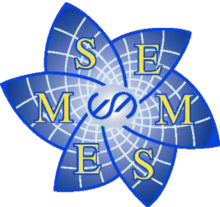Governance
The governing body of the EMS is its Council. Council has delegates from all of the national societies which are members of the EMS, and it also has delegates representing the individual members of the Society. So, typically, a Council meeting includes about a hundred people from all over Europe. Evidently, it is not practical for Council meetings to be held very often, and in fact Council meets every two years.
The most recent Council Meetings were held in Krakow, Poland, June 30 - July 1, 2012; in San Sebastian, Spain, on June 28-29, 2014; Berlin, Germany, on July 16-17, 2016 and in Prague, Czech Republic on June 23-24, 2018.
In between Council meetings, the Executive Committee represents the Society and carries out the wishes of Council. The EC consists of up to ten members, including the President, two vice-Presidents, the Secretary, and the Treasurer. It meets at least twice each year, and of course it also transacts much of its discussions by email. It is also responsible for appointing subcommittees to deal with particular aspects of the Society's work, and for convening and preparing the business for Council.
History: The European Mathematical Society (EMS) was founded in 1990 in Madralin near Warsaw (Poland). Discussions to constitute such a society started in Helsinki in 1978 on the occasion of the International Mathematical Congress. The discussions were conducted within the European Mathematical Council, an initiative of Sir Michael Atiyah.
Here is more on the history of the EMS 1990-1998, and here is a gallery of past EMS Presidents.
Purpose: The purpose of the Society is to further the development of all aspects of mathematics in the countries of Europe. In particular, the Society aims to promote research in mathematics and its applications. It will assist and advise on problems of mathematical education. It concerns itself with the broader relation of mathematics to society. In short, it seeks to establish a sense of identity amongst European mathematicians. Created by and for the European mathematical community, the EMS is an effective intermediary between mathematicians and those in charge of politics and funds in Brussels.
Members: Today, the members of EMS consists of about 60 mathematical societies in Europe, about 50 institutional members, three associate members, four reciprocity members and about 3000 individual members who have joined the EMS directly or through their national societies.
The EMS is an affiliate member of the International Mathematical Union and an associate member of the International Council for Industrial and Applied Mathematics.
